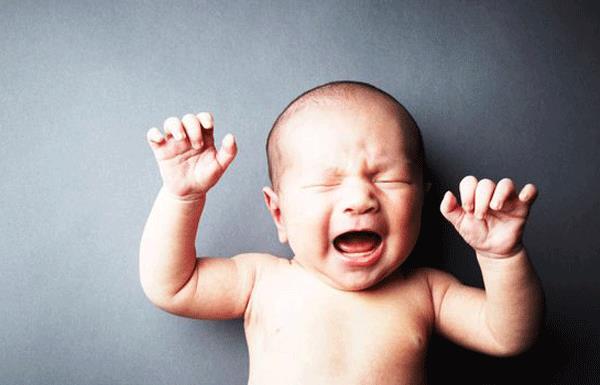Each mother takes care of her baby differently. Therefore, the folk tip about the phenomenon of infants lacking calcium and rickets always have "lasting vitality" over time, though many times science proves that most of them are incorrect.
content
Signs of calcium deficiency in babies according to folklore
3 common misunderstandings about calcium deficiency and rickets in children
How is calcium supplemented for children reasonable?
Notes on calcium supplementation for children
For mothers who are nursing babies, babies with calcium deficiency and rickets are something "terrible". Some mothers even blame themselves for improper childcare. In fact, after giving birth, some babies experience this phenomenon is also very normal. Just see a doctor and follow the instructions to give you the treatment.

Not just fussy and crying, hair loss is a lack of calcium
Signs of calcium deficiency in babies according to folklore
In folk tradition, there are still the following symptoms of calcium deficiency children:
Children often fussy and cry, sleep poorly, sleep or startled.
Children often twisted, spitting up, vomiting.
Babies sweat a lot, especially when they sleep.
Young hair falls out in a scarf-shaped line at the back of the neck.
Children often have laryngospasm causing difficulty breathing, hiccups ...
However, modern medicine today has proven these notions to be wrong and give a reasonable explanation.
3 common misunderstandings about calcium deficiency and rickets in children
Doctor Nguyen Tri Doan, Head of Pediatrics - Victoria clinic system said, there are 3 mistakes to eliminate when identifying symptoms of calcium deficiency in children:
Myth 1: Children often startle, startle is lack of calcium
The truth is : Frustration is a common condition in infants. When the baby is born, the child's brain is not fully developed, so the baby cannot control his limbs and body, making those parts operate "disorganized" or "uncontrollable".
The baby's brain develops gradually from head to toe, so from 4 months old, most babies will be able to control their bodies.
Myth 2: Hair loss is caused by calcium deficiency and rickets
The truth is : Young hair is in the stage of proliferation (hair growth) at birth. After a short while, partly due to changes in hormones the baby receives from the mother in the fetus, the baby's hair goes into a hair loss phase.
It is common theory that where the head is rubbed the most, there will be a lot of hair loss. For babies aged 0-6 months, the most rubbing position is the area behind the head and the shape of hair loss will naturally lose a lot in the middle of the head and then gradually smaller to the sides.
Myth 3: Sweating and restless sleep are caused by calcium deficiency
The truth is : Babies sweat due to heat, due to a child's tendency to have a higher body temperature than adults. Therefore, with certain temperatures, adults feel cold, but children feel hot.
In addition, babies who are fed warm milk have a hotter body and sweat more often. Children also do not turn their heads as often as adults, so the baby's head is more squashy and hotter. Babies have many sweat glands on their heads, so babies easily sweat their heads. When they are so hot and sweaty, they can't sleep well.
How is calcium supplemented for children reasonable?
For babies and young children, breast milk is the most abundant and easily absorbed source of calcium. With children under 6 months old breastfed properly to be provided with the necessary amount of calcium. If using formula milk, should give priority to calcium-rich milk for babies during this period.
When children eat weaning, the need for calcium is greater, in addition to drinking milk every day, mothers should add calcium to their children through some calcium-rich foods such as fish, kale, bananas, broccoli, tofu, oranges … These are also very nutritious foods for your weaning diet.
In particular, during this period, your baby can eat yogurt on the market. Do not forget to buy it in the refrigerator, or if you have time to make delicious milk for your baby!

After 6 months of age, mothers can let children get used to yogurt to supplement calcium
Children lacking calcium should take supplements containing calcium, vitamin D2, vitamin D3, B vitamins, lysine as well as many other nutrients to increase the body's ability to absorb calcium, and help children increase resistance. Depending on the health of the baby as well as the degree of calcium deficiency, the doctor will advise the appropriate drug as well as the dosage to use.
Notes on calcium supplementation for children
When calcium supplements for children according to the doctor's prescription, mothers need to note:
Children take calcium supplements at the same time with vitamin D, because thanks to vitamin D, the body will absorb calcium better.
Give the child calcium at the right dose and at the right time as directed by the doctor.
Do not give effervescent calcium to children because it can adversely affect the child's stomach.
Do not take calcium at the same time as iron or iron-rich foods. Calcium can inhibit iron absorption.
Do not add too much calcium at the same time, as it will affect the ability to absorb other substances.

How to use yogurt for babies 6 months to be good? 6 months is the best time to start weaning. This is also the time when mothers can introduce their children to the delicious and nutritious yogurt dish. However, do you know how to use yogurt for your baby for 6 months to get the best results?














